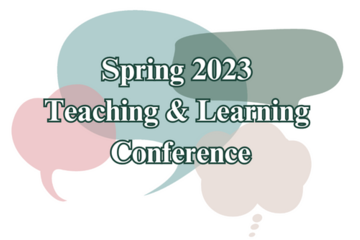Stephen Thomas
Title: Drawing to Teach: Visualizing our Curriculum for Reflection and Community
Location: Room 2130
College courses and programs of study are comprised of a complex arrangement of structures and processes that can make them difficult to conceptualize or communicate to others. When describing a course to others, we often fall back on simplistic narratives of the topic without referencing the pedagogy, assessment, learning environment, resources, student engagement, or a myriad of other impactful features. In this presentation we will look at what it might mean to use visual tools and formats to more formatively represent our curriculum to allow reflection on your teaching, receive feedback from colleagues, and foster community around our teaching efforts.
Dr. Stephen Thomas is the Assistant Dean for STEM Education Teaching and Learning, the Associate Director for the Center for Integrative Studies in General Science at and the Digital Curriculum Coordinator for the College of Natural Science at MSU. For his bachelor’s degree from Denison University, Stephen majored in Biology and minored in Art. This interest in the science/art intersection continued into graduate school as he freelanced as a biological illustrator while earning his masters and Ph.D. at the University of Massachusetts at Amherst in Organismal and Evolutionary Biology and Entomology. Since coming to MSU, Stephen’s focus has shifted from virulence of fungal pathogens of Lymantria dispar to visual communication of science in formal and informal settings and the use of technology in teaching.
Stephen has worked on projects such as the use of comics to reduce subject anxiety in non-major science courses, the development of a Massive Open Online Course (MOOC) to teach general science, and augmented reality and kiosk games to engage visitors in science museums. In more recent projects, Stephen has worked on curriculum for Drawing to Learn Biology where students explore science practices of observation and visual model-based reasoning through nature journaling. In his professional development work, Stephen collaborates with Dr. Julie Libarkin on building communities of practice in STEM teaching, STEM education research, and interdisciplinary experiences in art, science, and culture. You can learn more about this work at the STEMed@State website.


